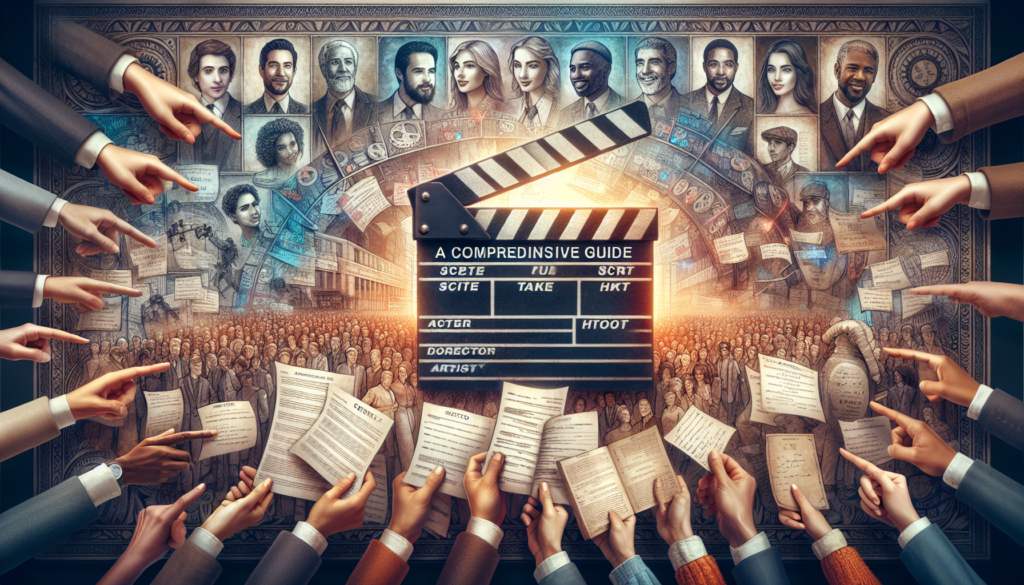The allure of acting as a profession comes with the stark reality that it is, indeed, a highly competitive business. Breakout roles and steady employment are the dreams of many, yet achieved by few. Success in this elusive field requires not only talent and dedication but also an intricate understanding of the audition process—a pivotal step in securing roles and establishing oneself in the industry.
**Understanding the Audition Process**
At its heart, an audition is a job interview, albeit one where you are required to showcase your ability to become someone else entirely. The process starts much before you set foot on the audition stage, with the meticulous preparation of your materials—your resume, headshots, and perhaps most importantly, your reel. Your headshot serves as your first introduction, and your resume should succinctly highlight your experiences and skills. Meanwhile, a well-crafted reel can effectively present your range as an actor.
After applying or being invited to audition, the preparation phase begins. This encompasses researching the role, understanding the script, and perhaps even delving into character development. Remember, the casting directors, who are your primary audience during an audition, are looking for individuals who not only fit the physical and emotional requirements of a role but also bring something unique to the table.
**Navigating the Auditions**
Auditioning can be a daunting process, filled with nerves and uncertainty. However, approaching it with the right mindset and strategies can significantly improve your performance and chances of success.
Firstly, always be professional. This means arriving on time, being prepared, and having a positive attitude. You are there to do a job, and showing that you take the process seriously can make a strong impression.
Secondly, take risks. While it’s important to meet the casting directors’ expectations, adding your unique flair or interpretation can make you memorable. However, ensure your choices are grounded in the script and character.
Thirdly, be adaptable. Often, you will receive directions during your audition. How you respond and incorporate feedback can be just as important as your initial performance. It shows directors how you take direction and adapt, which are crucial skills on set.
Lastly, focus on the craft, not the outcome. It’s easy to get caught up in the desire to land the role, but auditions are also opportunities to grow as an actor. Every rejection is a learning experience, helping you refine your skills for the next opportunity.
**Building Relationships**
The acting industry thrives on relationships. Connections with casting directors, agents, and other actors can open doors to opportunities that might otherwise remain closed. Networking events, acting workshops, and even social media platforms are invaluable for building and maintaining these relationships. Remember, the industry is about who you know just as much as what you know.
**The Role of an Agent**
Securing an agent can be a game-changer in an actor’s career. Agents help navigate the complexities of the industry, find auditions that match your skills, and negotiate contracts on your behalf. However, getting an agent requires demonstrating not just talent, but also a commitment to acting as a profession. A strong portfolio, professional demeanor, and a good track record in auditions are essential.
**Embracing Rejection**
Rejection is an integral part of the audition process. It’s not a reflection of your worth as an actor but rather a matter of fit. Perhaps the most crucial skill an actor can develop is resilience—the ability to bounce back from rejection and continue pursuing their passion with undiminished fervor.
**Conclusion**
Navigating the business of acting is no small feat. It requires a blend of talent, preparation, professionalism, and perhaps most importantly, patience. The audition process is both an art and a science, demanding a nuanced understanding of the craft and the industry.
However, amid the challenges, acting remains one of the most fulfilling professions. The thrill of embodying different characters, the joy of storytelling, and the profound impact you can have on an audience make all the hard work worthwhile. With dedication, resilience, and a strategic approach to the audition process, the dream of a successful acting career is within reach.



